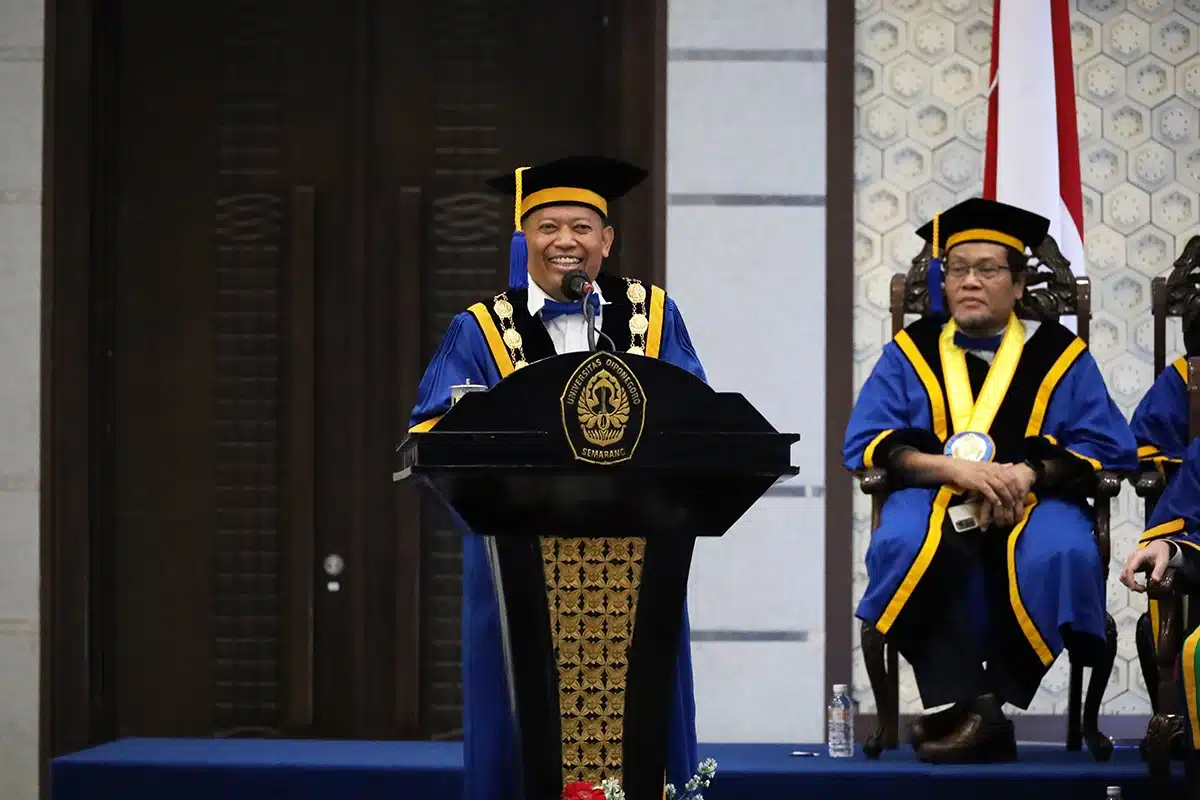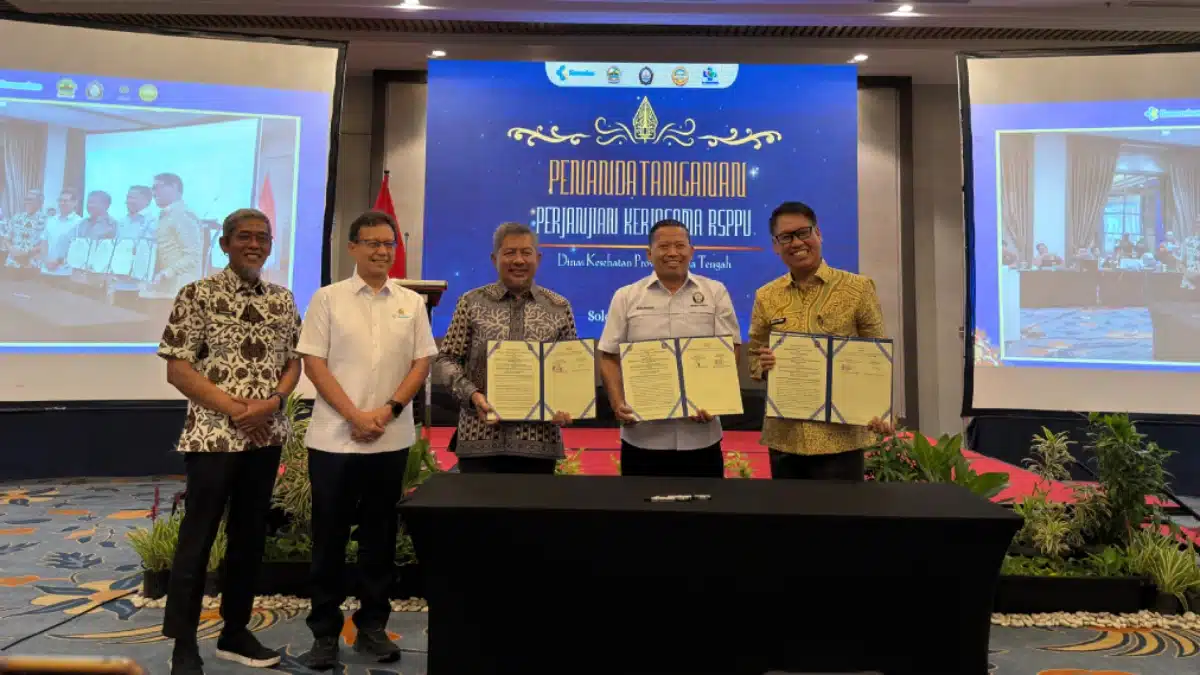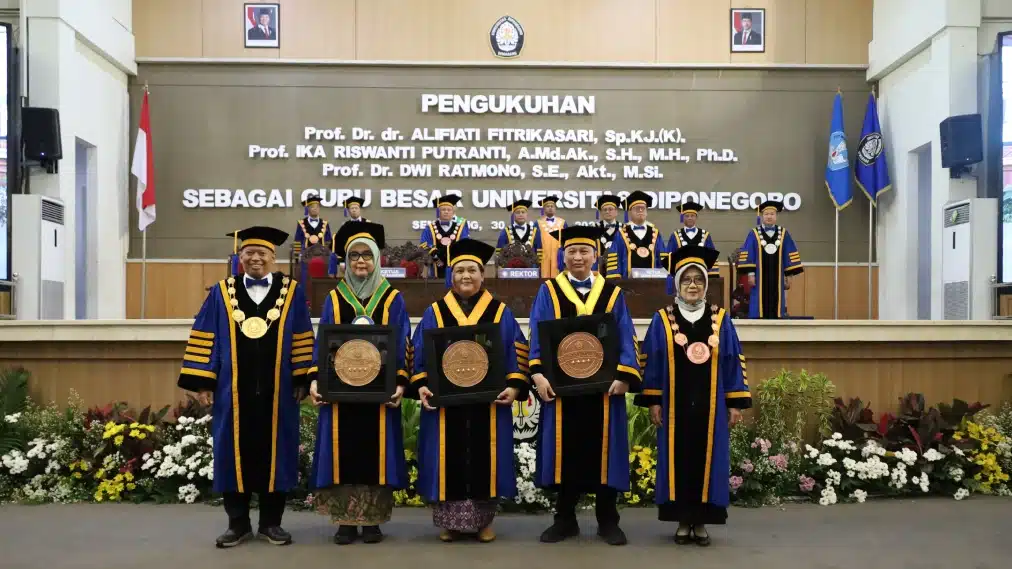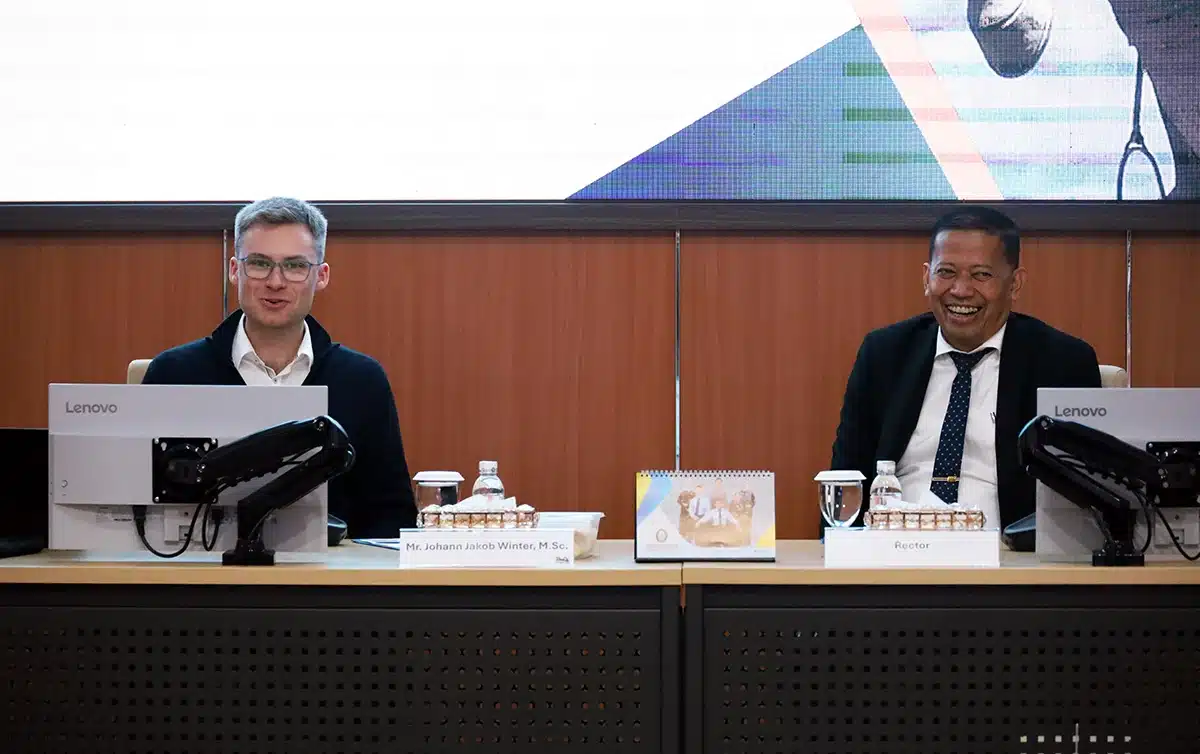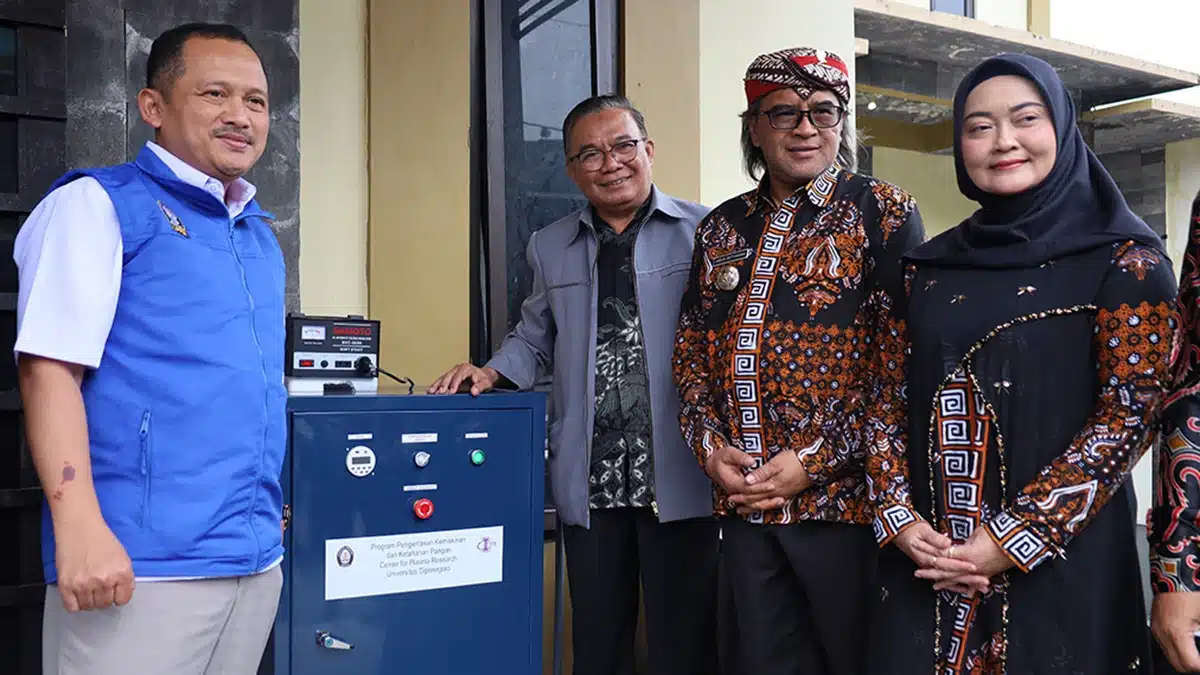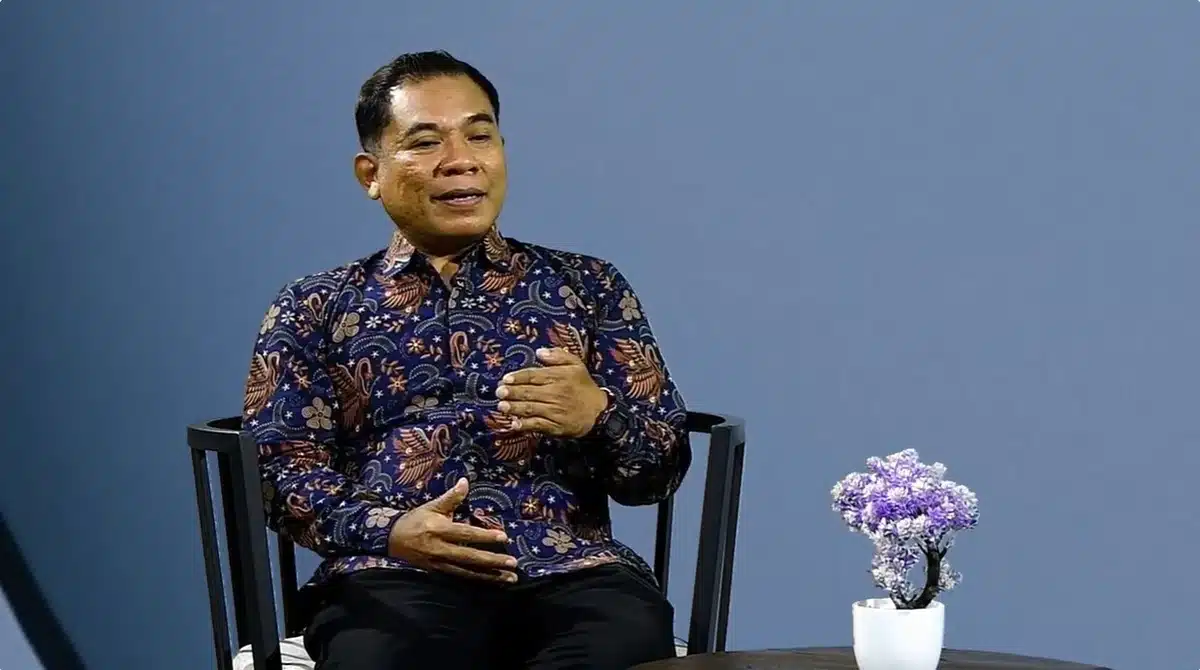UNDIP, Semarang (November 11, 2025) – Scientific innovation does not always emerge from sophisticated laboratories, but often from sensitivity to real-world challenges. This belief is strongly upheld by Prof. Dr. Ir. Andri Cahyo Kumoro, S.T., M.T., IPU, ASEAN Eng., Professor of Chemical Engineering at the Faculty of Engineering, Universitas Diponegoro (UNDIP), who has been recognized among the top 2% of the world’s most influential researchers in 2024–2025. Through his research on functional foods and biomedical materials derived from Indonesia’s biological resources, Prof. Andri offers a scientific approach rooted in the archipelago’s natural wealth — with a focus on improving public health and well-being.
Since joining UNDIP in 1998, Prof. Andri has been recognized for his expertise in agricultural product processing, industrial waste treatment technology, and modeling chemical engineering systems. His ability to integrate process engineering with tropical natural resources has opened new opportunities in developing health-promoting food products and environmentally friendly biomaterials.
In an episode of the UNDIP Podcast, Prof. Andri shared his long and challenging journey into the world of research. During the economic crisis of the late 1990s, local scholarship opportunities were scarce. With determination, he earned a full doctoral scholarship at the University of Malaya, Malaysia, where he studied supercritical fluid extraction technology — a cutting-edge method at the time — and researched bioactive compounds from sambiloto leaves, a Southeast Asian plant that has since become the basis for numerous modern biomedical studies.
“In Malaysia, I had the opportunity to learn the entire research process — from initial processing and equipment design to analytical methods and technology applications,” he recalled.
Upon returning to Indonesia, Prof. Andri carried a strong mission to develop knowledge that benefits society. His research focuses on utilizing Indonesia’s tropical natural resources to create functional foods — products that are not only nutritious but also rich in bioactive compounds such as antioxidants and anti-inflammatory agents that support health. For him, food should not only taste good but also contribute to people’s overall well-being.
His research has become a global reference in the scientific community, inspiring international collaborations and strengthening UNDIP’s position as a center of excellence in bio-based food research. “I believe that science must always serve a purpose. It is born from society and must return to society,” he emphasized. His philosophy aligns with several UN Sustainable Development Goals (SDGs) — particularly Goal 2 (Zero Hunger), Goal 3 (Good Health and Well-being), and Goal 12 (Responsible Consumption and Production).
Prof. Andri’s work stems from concern over the rising incidence of degenerative diseases among young people, including diabetes, hypertension, and obesity — often linked to modern diets lacking fiber and antioxidants. Through his functional food approach, he envisions products that go beyond fulfilling basic nutritional needs (carbohydrates, proteins, and fats) by incorporating natural bioactives that serve as antioxidants, anti-inflammatory agents, and immune boosters.
Among the innovative products developed by his team at the Institute of Food and Remedial Biomaterial (INFARMA) are natural vitamin powder drinks made from cashew fruit; herbal antioxidant ice cream; low-caffeine coffee produced from salak (snake fruit) seeds, and Rambutan seed–based chocolate alternatives rich in plant-based fats that open new economic opportunities based on local biodiversity. These innovations also support SDG 13 (Climate Action) and SDG 15 (Life on Land) through Zero-Waste approaches in agricultural residue management, enhancing food resilience and increasing the economic value of previously unused materials.
Despite these breakthroughs, challenges remain, including product safety standards, natural ingredient regulations, and the public’s preference for fast food. Prof. Andri emphasizes the importance of nutrition literacy and behavioral change among younger generations.
Beyond food, his research also extends to biomedical applications. Together with his team at INFARMA, he is developing medical sutures made from porang- and seaweed-derived glucomannan, an eco-friendly and renewable biomaterial. This initiative supports SDG 9 (Industry, Innovation, and Infrastructure) and SDG 12 (Sustainable Production) by utilizing local bioresources for high-value medical applications.
He notes that UNDIP’s integrated laboratory facilities play a vital role in strengthening multidisciplinary research and cross-faculty collaboration. Supported by the World Class University (WCU) Program initiated by UNDIP’s LPPM, the university now boasts advanced facilities for food processing, biomaterial design, and active compound characterization. “These facilities are open for collaboration across universities and industries. Science must be open — because openness breeds innovation,” he said.
“Our lab is open. Researchers from other institutions are welcome. We don’t talk about competition, we talk about shared benefit,” Prof. Andri added.
Remarkably, Prof. Andri’s research is designed to be applicable and transferable to small and medium enterprises (SMEs) and community groups through mentoring, training, and product commercialization. Thus, knowledge does not stop at publication but transforms into a beneficial ecosystem. He emphasizes the importance of technology transfer, enabling academic research to extend beyond journals into local food production that meets health, halal, and sustainability standards — aligning with SDG 8 (Decent Work and Economic Growth) and SDG 17 (Partnerships for the Goals).
Looking ahead, Prof. Andri envisions that in the next five to ten years, Indonesian research on bio-based food and biomedical materials will focus on achieving raw material independence and enhancing national nutrition resilience, resulting in the production of affordable, high-quality, and health-oriented local products.
“Indonesia must be able to harness its biological wealth to ensure food and health sustainability,” he stated. “Whoever controls food, controls the future,” he added, quoting President Prabowo.
Through his work, Prof. Andri demonstrates how chemical engineering extends beyond theories of mass and energy transfer, becoming a practical tool for sustainable innovation that encompasses social, economic, and environmental dimensions. His journey reflects the true embodiment of “Noble and Valuable UNDIP” — where impactful science, human-centered research, and technology grounded in local wisdom shape a healthier and more sustainable future. (Public Communication/UNDIP/DHW & Zaila)


